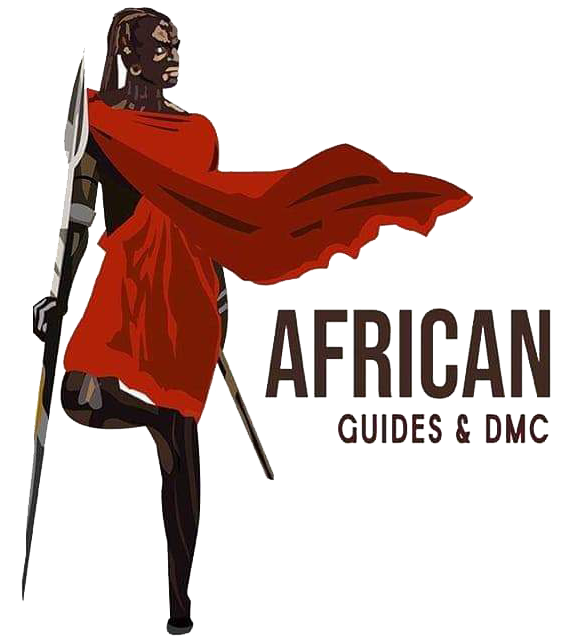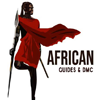No products in the cart.
Comparing Prices: How Much Does An African Safari Holiday Really Cost?
Welcome to a great conversation on African safari vacations, nature lovers. Today, we dive deep into the African wilderness to answer a burning topic for many adventurers: How much does an African safari vacation cost?
Join us, African Maasai Guides, as we compare the prices and go on a trip to discover the cost of an incredible safari adventure. From Kenya’s immense savannas to Uganda’s lush forests, we’ll explore the different landscapes and magnificent species that make an African safari a once-in-a-lifetime experience. So please sit back, relax, and learn how much an African safari vacation costs.
Knowing how much a safari cost is critical whether you’re a seasoned safari-goer or a first-time adventurer. On average, a safari costs about $200 per person per day, although pricing can vary significantly based on your tastes and budget.
Budget safaris start at roughly $200 per person per day, whereas midrange safaris begin at around $350. In contrast, luxury safaris can cost up to $600 per person each day. So, let’s look at the numerous aspects that influence the cost of an African safari to assist you in choosing the best option for your next vacation.
Four things determine the cost of your safari. To begin, the country you visit will influence the price, as each country has unique tourism policies. Second, the cost of transportation on a safari varies based on the kind of transportation used and the distance travelled. Third, the expense of lodging in hotels and lodges will impact the overall cost of your safari. Fourth, the time of year you visit, whether off-season or high season, can affect the price. Finally, the length of your safari and any additional expenses will influence the cost.
Regarding safari destinations, Tanzania is one of the most famous in East Africa. Tanzania offers diverse tourist activities, including wildlife viewing, game drives, and the chance to see the Big Five. As a result, Tanzania has emerged as a must-see location for those seeking an authentic African safari. But how much does a Tanzania tour cost?
How Much Does Transport Cost On A Safari?
Due to poor roads in the National Parks, most Tanzania safaris require 44 vans. The itinerary determines the type of transportation used, and driving to different destinations is typically an option. Inbound flights are faster but more costly, and a self-drive is budget-friendly. Three modes of transportation are available: self-drives, fly-ins, and private drive-ins. Fly-ins are expensive but convenient for those who need to get somewhere quickly, whereas private drive-ins are ideal for two people and give plenty of time to see everything.
The Best time to visit Tanzania for a safari adventure and how it affects the cost of the safari
The dry season, which runs from June to October, is the ideal time to see the wildebeest migration, but it also means higher prices due to high demand. The rainy season, from April to May, on the other hand, is the low season, with lower prices on everything, making it the best time for budget tourists. Finally, the safari cost is reduced by 20% during the mid-season months of February, June, and January.
The Duration Of The Safari
The length of the safari is an essential element that influences the trip’s overall cost. A lengthier safari incurs higher costs, whereas a shorter safari incurs lower costs. Choosing low seasons and low-cost accommodations can help budget-conscious travellers who still want to prolong their safari experience. Travelling in groups is also an excellent method to save money. When planning a safari trip to Tanzania, it is essential to consider the number of people travelling, the season, and the accommodation style.
Additional costs to budget for while on a safari in Tanzania
There are a few things to remember as you embark on your adventure. First and foremost, visas are needed for entry into the country and cost $100 for tourists with US citizenship and $50 for nationals, with single access valid for 90 days. Second, it is customary to tip employees who assist you during your stay, such as tour guides, porters, and chefs, with a suggested sum of USD 10. Third, travel insurance should cover theft, cancellation, illness, and other critical issues. Fourth, recommended lodging facilities offer laundry services for about $2.
Finally, while food and water are provided during game drives, other drinks such as wine, beer, and whiskey are charged extra, typically around USD 30 per day. So, when planning your safari, consider the budget for these additional costs!
Other East African Safaris
Travelling to Tanzania for a safari can be pretty interesting for a tourist; other East African destinations can also be added to your itinerary to expand the safari. Uganda, for example, provides gorilla trekking in Bwindi, whereas Zanzibar is an island destination with distinct attractions. Another alternative is to travel to Kenya to compare the wildebeest migration between Tanzania’s Serengeti and Kenya’s Masai Mara.
A safari in Kenya costs about USD 220 per individual per day. It would be best to visit other East African nations, such as Uganda and Rwanda, where you can go on a gorilla trek. In Uganda, a gorilla trekking permit costs USD 700; in Rwanda, it costs USD 1500 per individual per day. If you want to include gorilla trekking in your Tanzania trip, you must book gorilla permits ahead of time because only a limited number are issued yearly.
To summarize, an African safari vacation is a once-in-a-lifetime experience that requires careful planning to ensure a memorable and enjoyable journey. The cost of your safari is determined by four major factors: the country you travel to, transportation, lodging, and the time of year. By considering these variables and comparing prices, you can plan a low-cost safari trip that fits your needs and expectations.
Don’t let the expense of an African safari deter you from going. You can locate a safari that fits your budget with careful planning and study. Remember to compare prices and consider all the factors that impact the cost of your trip. We trust this guide has helped answer the question, “How much does an African safari vacation cost?”







